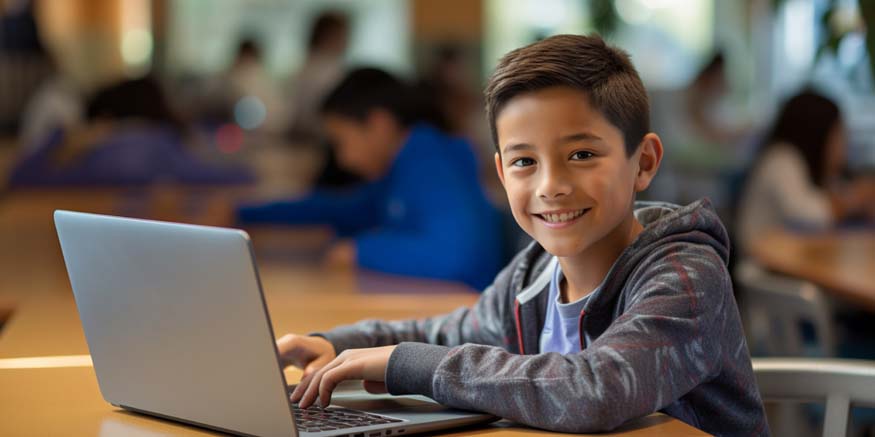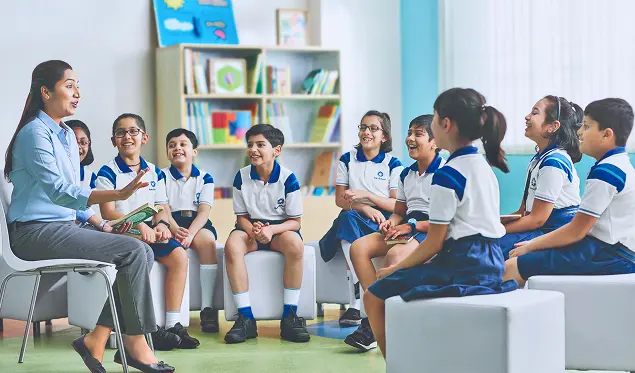One can hear this very often, reduce screen time for kids, why do you allow them so much screen time? How much screen time is healthy and why should screen time be limited? So, what is this screen time everyone is talking about?
Screen time is a term that is used to describe idle activity that is done in front of a screen. Be it a phone, a tab, a computer, or a television. Screen time accounts for almost all the time that is spent before a screen.
So why do we have to care about screen time so much? Well, the average time spent on digital devices has been steadily going upwards for years now, as these devices keep getting upgraded and are released regularly, they become more and more accessible and affordable. There are several debates around whether screen time is unfavorable and if at all it affects lives, relationships, or personal development.
Teens especially tend to spend much more time in front of screens nowadays. But physical activities and outdoor activities that are very essential for a child’s development can be hampered by too much screen time. Exercise is not obtained enough, homework is skipped or missed, and socializing and spending time with friends and family are stopped. All of these contribute to major health issues such as obesity, concentration and learning problems, as well as sleep problems.
Now that we know the effects of too much screen time we must understand that it is important to reduce screen time for kids, especially teens. By doing so you are not only reducing screen time, but encouraging a child to perform better and develop in a better way. Screen time management is necessary because too much screen time will affect a child’s brain and slow down its development. It also interferes with focus and causes distraction. Children are no longer able to complete their task efficiently and over time this only gets worse. So reducing screen time or screen time management will only help to increase the ability of a child to focus as well as regulate emotions. It will also help to organize thoughts and complete tasks efficiently.
Now that we know so much about the effects of too much screen time, let me tell you that there are several benefits of cutting down on screen time for kids. Here are 5 main reasons:
- It helps to improve a child’s physical health and appearance.
- It definitely helps to free up time to have fun, play outdoors, and explore.
- It helps to gain numerous benefits from making social connections.
- It helps to boost a child’s mood.
- It helps to build a strong community.
The benefits of screen time management for your child would include, but are not limited:
- It improves sleep, helps with better focus and brain function.
- It is known to increase academic success.
- It does not damage or affect vision.
- It lowers the risk of anxiety and depression.
- It decreases obesity.
The over-use of digital devices for your child can lead to:
- Less time for play.
- Eye damage or computer vision syndrome can be caused by over-use of digital devices for your child.
- Impaired academic performance.
- Irregular or disturbed sleep can be caused by overuse of digital devices for your child.
- Behavior problems and moodiness can be caused by overuse of digital devices for your child.
So now that we are aware that too much screen time is not good and beneficial for kids one would want to know what the average screen time is for a teenager? Well, a maximum of two hours per day is adequate screen time for kids. Pediatricians generally recommend the following guidelines:
- Under 2 years old: Zero screen time.
- 2-5 years old: Not more than one hour per day.
- 5-17 years old: Not more than two hours per day.
Now this is to exclude any video chatting with family or friends, co-viewing with a parent or siblings, homework that requires screen time. So now that we know what the average screen time is for a teenager, let us have a look at some facts.
As per recent reports, teenagers spend an average of 8 hours 39 minutes per day on screens and different digital devices, this is compared to 5 and a half hours for preteens. This screen time has increased furthermore in the last two to three years of the pandemic compared to the four years prior to the pandemic.
Another report shows the average screen time in the age group of: 8-10 years old is six hours. 11-14 years old is nine hours and 15-18 years old is seven and a half hours. All of this needs better screen time management and must be reduced substantially.
Here are some tips on how to manage screen time for kids to help with good mental health.
- It is necessary to curate social media feeds and allocate limited time for it.
- Turn off or limit all notifications on your phone and computer to avoid overspending time.
- It is important to pay attention to your mental state and take breaks when you feel bored, distracted, or stressed.”
- Limit screen time as much as possible and keep yourself busy with other physical activities.
- Do not use digital devices during meals or family gatherings.
Well, screen time is not all that bad. There are advantages of giving a teen some screen time:
- Screen time can help children develop problem-solving skills.
- It helps them to socialize and meet new people, as well as keep in touch with family and friends who live afar.
- It definitely helps with a child’s creative and communication skills.
- It gives children ideas to learn new things, such as taking photos, making videos, and using online maps.
- The use of adequate and limited screen time for kids helps them to learn and teach others to play games that help in a child’s brain development.
So, here are some positive effects of screen time.
- Some screen time is essential for kids as it helps them with cognitive skills,
- It improves communication skills,
- At times it is very stimulating to a child’s brains.
- A child can learn better and faster with the help of online videos or reading some content or even researching essential information for assignments and homework.
- It acts like a reset for kids when they are extremely overwhelmed with their daily routine.
Also Read: Instilling the best social-emotional values in children, in a natural way









